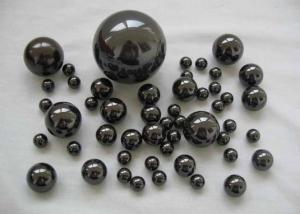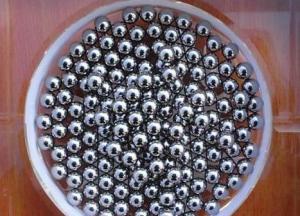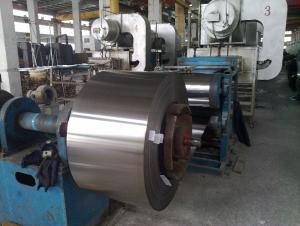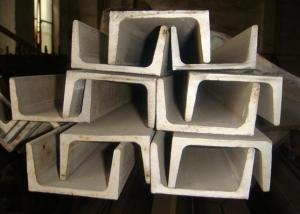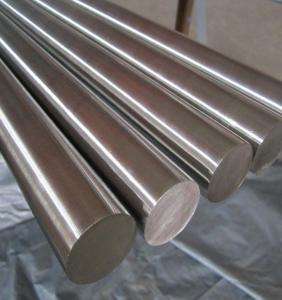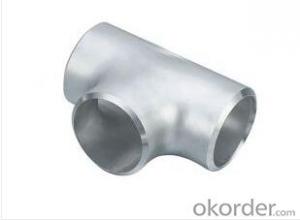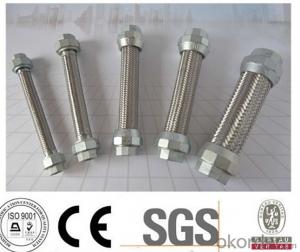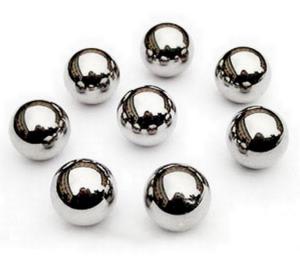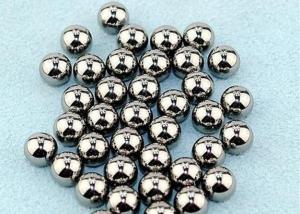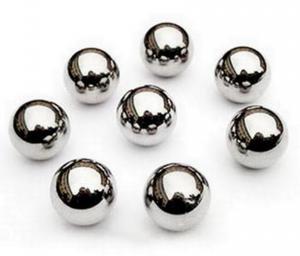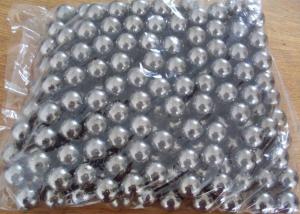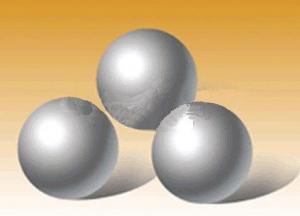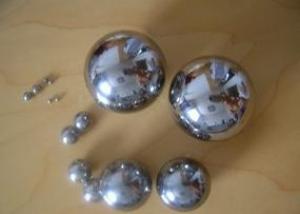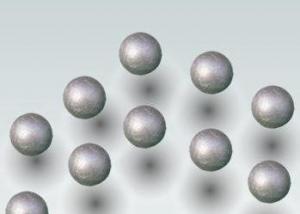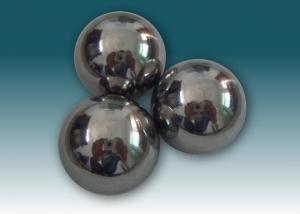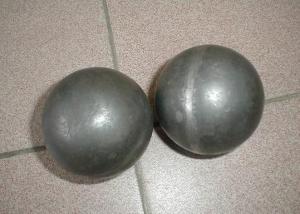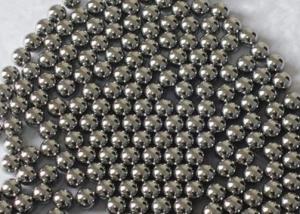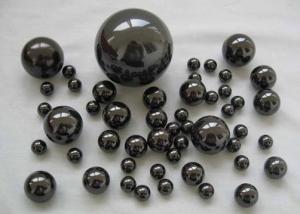316L Stainless Steel Ball
- Loading Port:
- China Main Port
- Payment Terms:
- TT or LC
- Min Order Qty:
- 5 Tons pc
- Supply Capability:
- 1000 Tons Per Month pc/month
OKorder Service Pledge
OKorder Financial Service
You Might Also Like
Stainless Steel Ball
MAIN PRODUCTS:
1. Material: AISI304, 316L, 420C, 430, 440C
2. Steel ball, with material AISI 1008-1086.
3. Chrome steel ball,with material: AISI52100
4. Flying saucer steel ball
5. Precision casting, including auto parts, machine parts, hardware handles, etc.
CHARACTER OF PRODUCTS:
1.The Grade of our products is from G10 to G1000
2.The dimension is from 0.5 mm to 25.4 mm.
3.The products from us are widely used in several industries, such as hardware, sliders, ball bearing lead screw, wheels, toys, bicycles, bearings, trust bearings pulleys, chemical industries, etc.
DETAIL SPECIFICATION:
|
Item |
SS304,316L,420C,440C Stainless steel ball |
|
Category |
Stainless Steel Ball |
|
Material |
AISI 420 430 440 SS304 316L |
|
Size |
0.5mm--25.4mm, 1/4",3/16",5/32",1/8",7/32",5/16",7/8",1" |
|
Grade |
G100-G3000 |
|
Hardness ( HRC) |
HRC58-65 |
|
Application |
Bicycle, bearing, pulley, slide, handcraft, shelf, luggage, hardware, grinding media |
|
Standard |
GB/T-308-2002, GB/T1148-93 |
|
Matched Standard |
DIN, JIS, ASME |
|
Certification |
ISO |
|
Packing |
Oily packing in pouch packing,plastic/tin box packing 1, 25kg/carton with steel pallet packing 2,25kg/carton without steel pallet packing 3,10kg/box then in wooden case packing 4,250kg/ steel drum packing or according to customers' requirement |
|
Place of original |
Shandong province, China |
|
Delivery |
Within 30 days or confirmed while placing order |
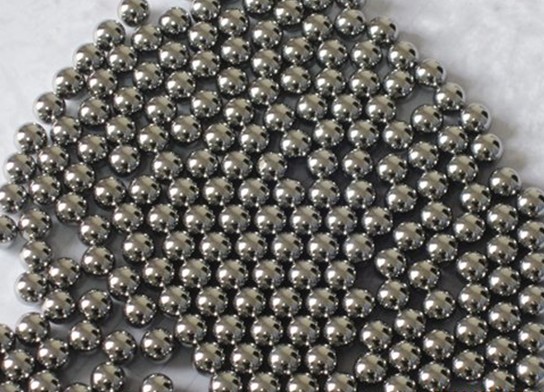
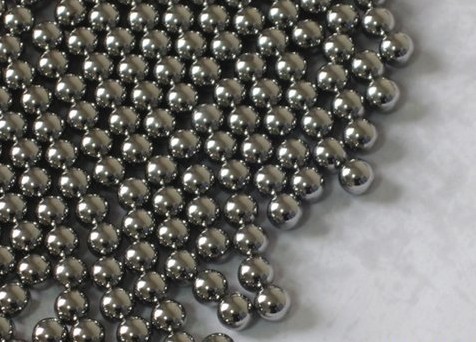
- Q:What are the different types of stainless steel used for manufacturing balls?
- Manufacturing balls involves the utilization of various stainless steel types. These include Austenitic stainless steel, which is renowned for its exceptional corrosion resistance and high toughness, making it ideal for ball bearings and other demanding environments. Martensitic stainless steel, on the other hand, is valued for its hardness and strength, making it suitable for ball valves and applications requiring resistance against wear and deformation. Ferritic stainless steel, known for its resistance to corrosion and oxidation, finds its place in ball bearings and applications exposed to harsh chemicals and high temperatures. Lastly, Duplex stainless steel combines the advantages of austenitic and ferritic stainless steels, striking a balance between strength and corrosion resistance, making it suitable for various ball manufacturing applications. The selection of stainless steel types for ball manufacturing depends on factors such as the intended application, environmental conditions, and desired properties of the final product. Manufacturers carefully choose the appropriate stainless steel based on the specific requirements of the ball's end-use, as each type possesses unique characteristics.
- Q:Are stainless steel balls suitable for use in nuclear power plants?
- Yes, stainless steel balls are suitable for use in nuclear power plants. Stainless steel is known for its excellent corrosion resistance and durability, making it an ideal material for critical applications in nuclear power plants. Stainless steel balls can be used in various components such as valves, pumps, and control systems, where their high strength, resistance to radiation, and low magnetic permeability are highly advantageous.
- Q:Stainless steel ball, one, two, three pieces of internal and external structure what is the difference?
- The ball is put in the side, and there is a gland locking sphere at one end. The two piece ball valve adopts the left and right body; and the three piece ball valve adopts three parts: the left and right body and the intermediate part,
- Q:Are stainless steel balls resistant to hydrochloric acid?
- Generally, hydrochloric acid does not have a significant effect on stainless steel balls. Stainless steel is renowned for its ability to resist corrosion and can endure exposure to different chemicals, including hydrochloric acid. Nonetheless, it is crucial to consider that the specific resistance may vary depending on the grade and composition of the stainless steel utilized. In cases where there is concentrated or prolonged exposure to hydrochloric acid, there may be some corrosion or pitting; however, these effects are typically milder compared to other metals.
- Q:Are stainless steel balls used in semiconductor equipment?
- Yes, stainless steel balls are commonly used in semiconductor equipment. They are utilized in various applications within the semiconductor industry, such as wafer handling, precision positioning, and valve operation. Stainless steel balls are preferred due to their excellent corrosion resistance, high strength, and durability. These properties ensure that the balls can withstand the harsh operating conditions and maintain their performance over time, making them suitable for semiconductor manufacturing processes.
- Q:Are stainless steel balls suitable for use in textile machinery?
- Yes, stainless steel balls are suitable for use in textile machinery. Stainless steel balls are known for their durability, corrosion resistance, and high strength, making them ideal for various applications in textile machinery. They can be used in spinning, weaving, and knitting machines, among others. Stainless steel balls help in reducing friction and wear, ensuring smooth operation and long lifespan of the machinery. Additionally, their resistance to moisture, chemicals, and high temperatures makes them highly reliable in the textile industry. Overall, stainless steel balls are a suitable choice for use in textile machinery due to their excellent properties and performance.
- Q:Can stainless steel balls be used in check valves?
- Check valves can utilize stainless steel balls. Due to their resistance to corrosion, strength, and durability, stainless steel is a favored material for check valve components. The purpose of stainless steel balls in check valves is to create an effective seal, preventing the reverse flow of fluids or gases. The precise dimensions and smooth surface of these balls guarantee a secure seal, enabling dependable and efficient operation of check valves across diverse industries and applications.
- Q:Are stainless steel balls used in ball valves?
- Yes, stainless steel balls are commonly used in ball valves due to their corrosion resistance and durability.
- Q:Can stainless steel balls be used in electronics or electrical components?
- Yes, stainless steel balls can be used in electronics or electrical components. They are often employed as bearings, connectors, or conductive elements due to their high corrosion resistance, durability, and electrical conductivity.
- Q:How do stainless steel balls perform in cryogenic storage?
- Various applications, including cryogenic storage, widely use stainless steel balls. When exposed to cryogenic temperatures, stainless steel balls demonstrate outstanding performance and dependability. An exceptional advantage of stainless steel is its remarkable resistance to low temperatures. This implies that stainless steel balls can endure extreme cold without compromising their mechanical properties. They retain their strength, hardness, and dimensional stability, rendering them suitable for cryogenic storage environments. In cryogenic storage, stainless steel balls frequently find use due to their corrosion resistance. Even at sub-zero temperatures, stainless steel remains highly resistant to rust and oxidation, ensuring the balls' integrity over extended time periods. This corrosion resistance plays a critical role in cryogenic applications where the stored materials might be susceptible to contamination. Moreover, stainless steel balls possess excellent thermal conductivity, facilitating efficient heat transfer within the cryogenic storage system. This property proves advantageous as it maintains a consistent and uniform temperature distribution, guaranteeing the preservation of stored materials at desired levels. Furthermore, stainless steel balls offer notable wear resistance, minimizing the potential for friction and damage within the cryogenic storage system. Such durability ensures long-term reliability and reduces the necessity for frequent maintenance or replacement. To summarize, stainless steel balls excel in cryogenic storage. Their resistance to low temperatures, corrosion, and wear, along with their thermal conductivity, establish them as a dependable choice for maintaining the integrity and efficiency of cryogenic storage systems.
1. Manufacturer Overview |
|
|---|---|
| Location | Changsha,China |
| Year Established | 2003 |
| Annual Output Value | Above US$36 billion |
| Main Markets | Mid East;Western Europe;North America |
| Company Certifications | ISO 9001:2008; |
2. Manufacturer Certificates |
|
|---|---|
| a) Certification Name | |
| Range | |
| Reference | |
| Validity Period | |
3. Manufacturer Capability |
|
|---|---|
| a)Trade Capacity | |
| Nearest Port | Changsha |
| Export Percentage | 0.8 |
| No.of Employees in Trade Department | 160,000 People |
| Language Spoken: | English;Chinese;Japanese |
| b)Factory Information | |
| Factory Size: | Above 3,000,000 square meters |
| No. of Production Lines | Above 10 |
| Contract Manufacturing | OEM Service Offered;Design Service Offered |
| Product Price Range | Average |
Send your message to us
316L Stainless Steel Ball
- Loading Port:
- China Main Port
- Payment Terms:
- TT or LC
- Min Order Qty:
- 5 Tons pc
- Supply Capability:
- 1000 Tons Per Month pc/month
OKorder Service Pledge
OKorder Financial Service
Similar products
New products
Hot products
Hot Searches
Related keywords
